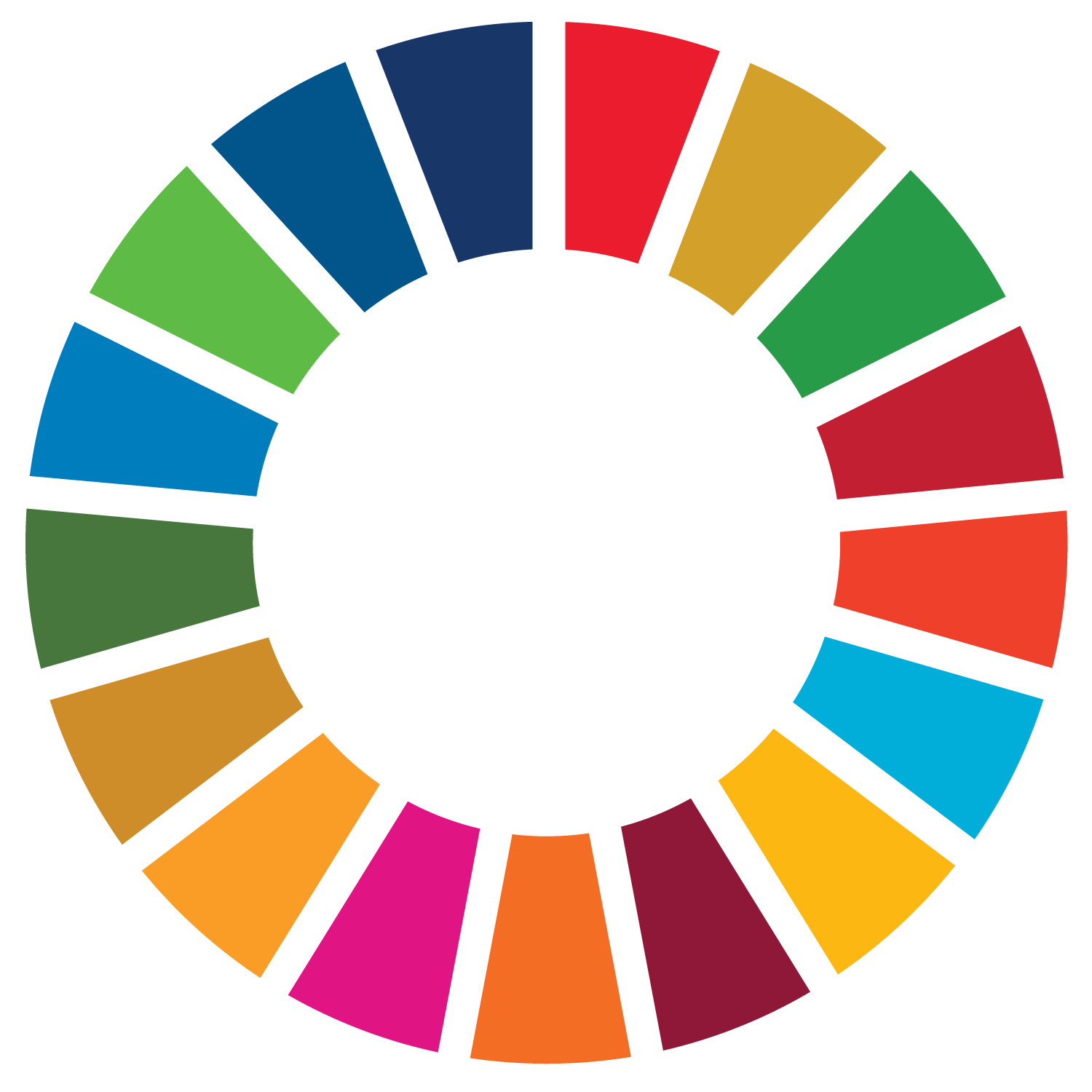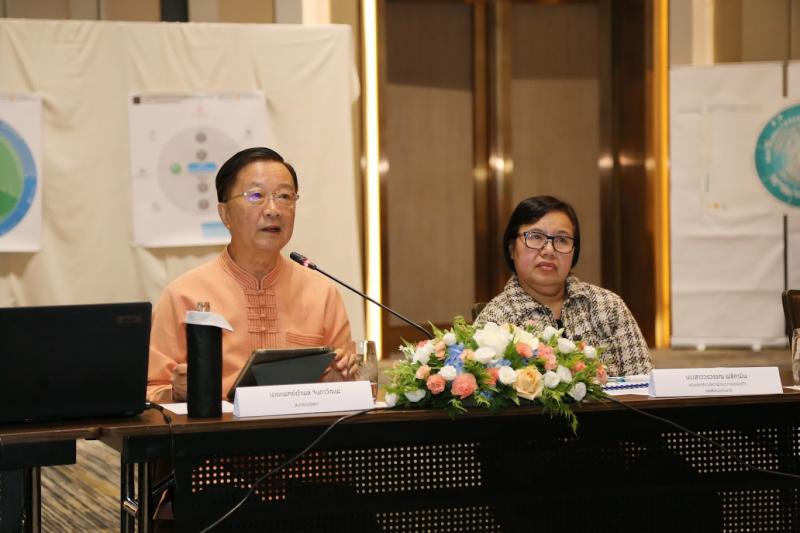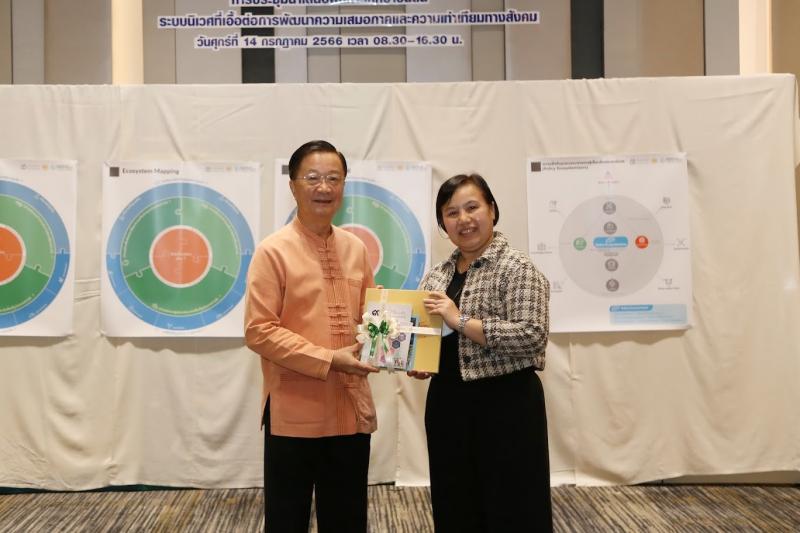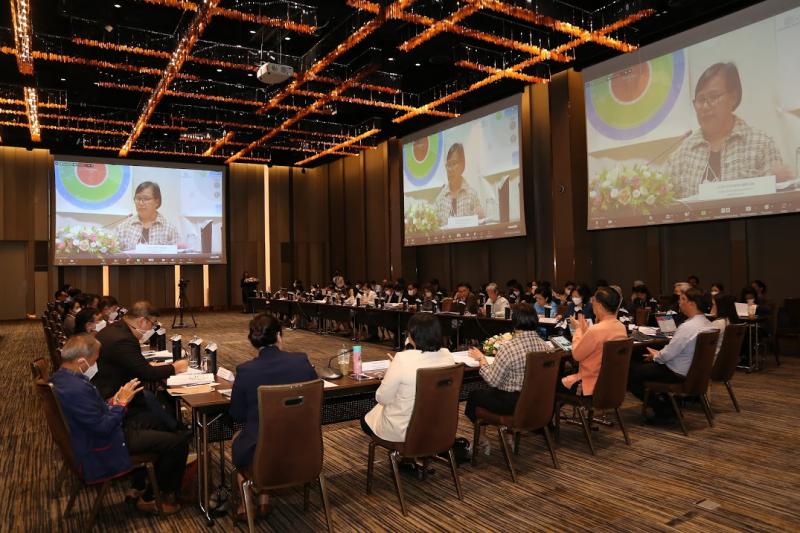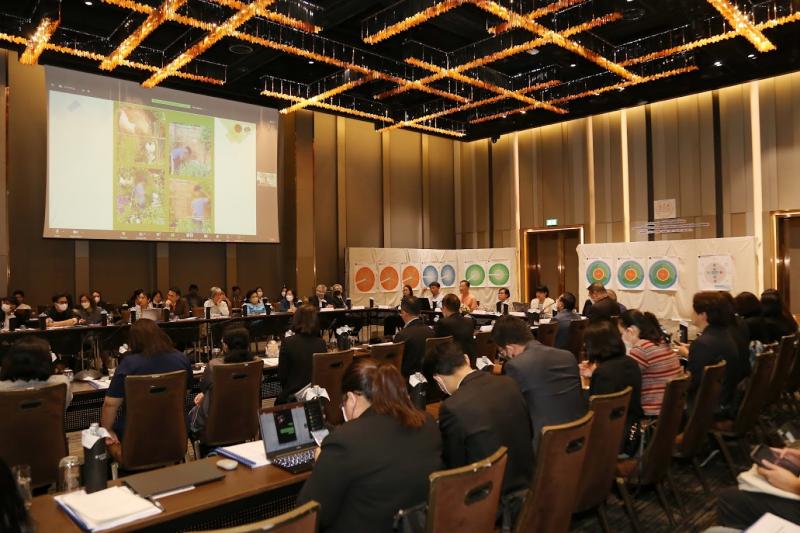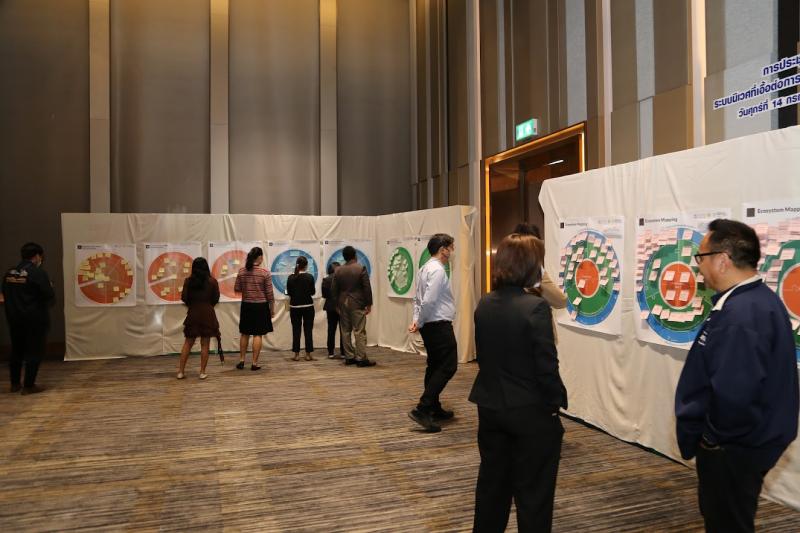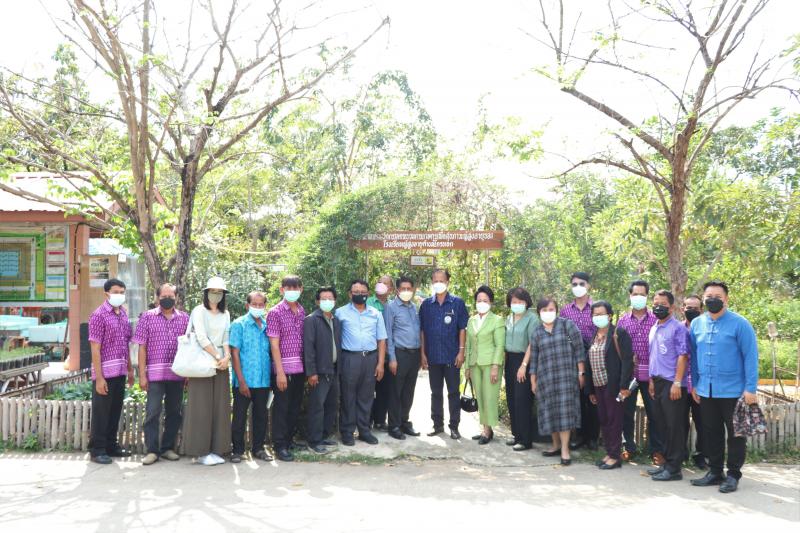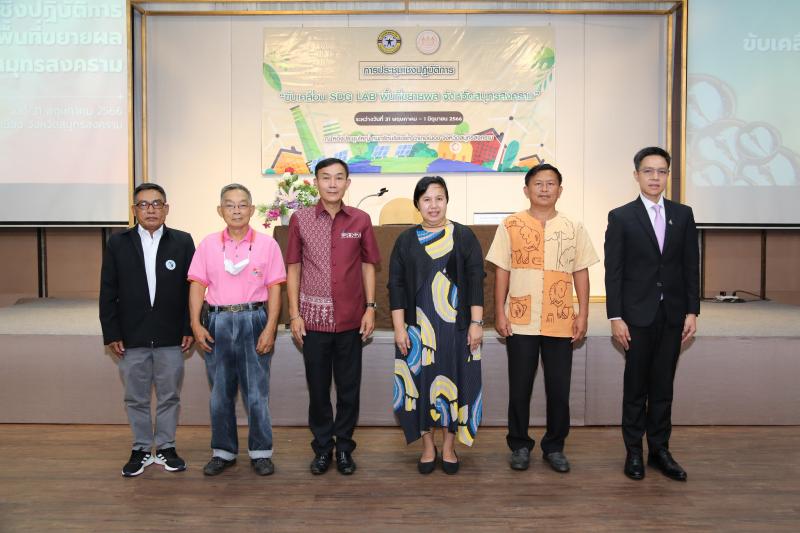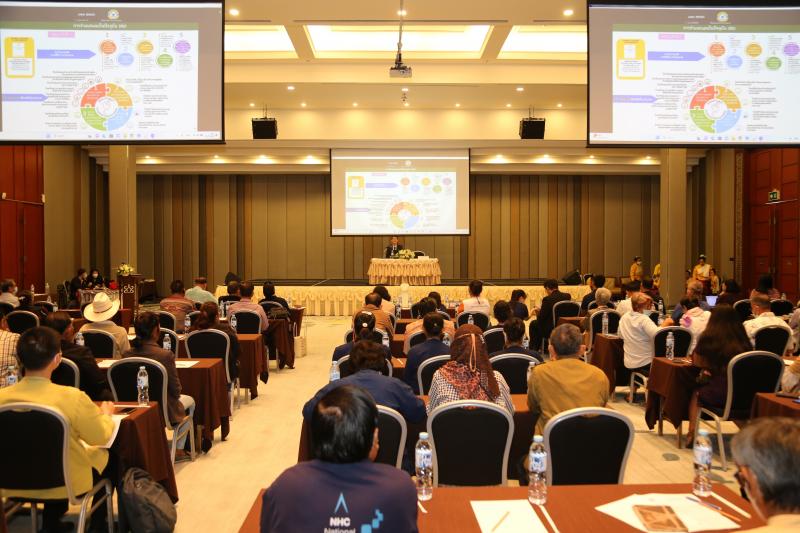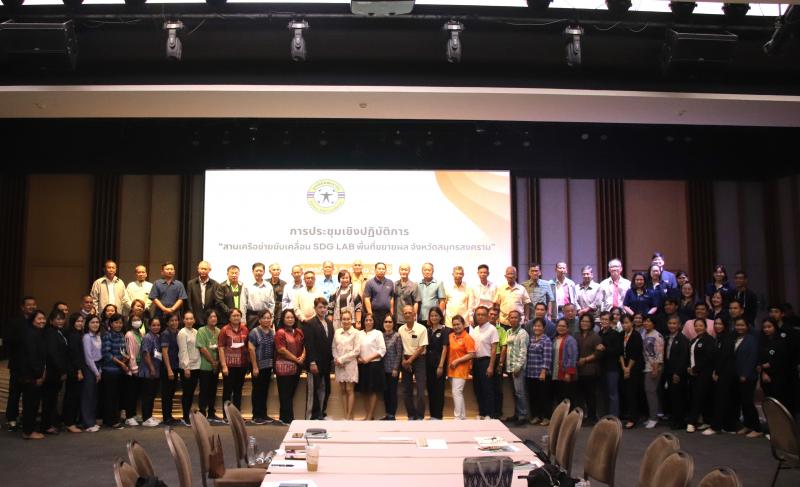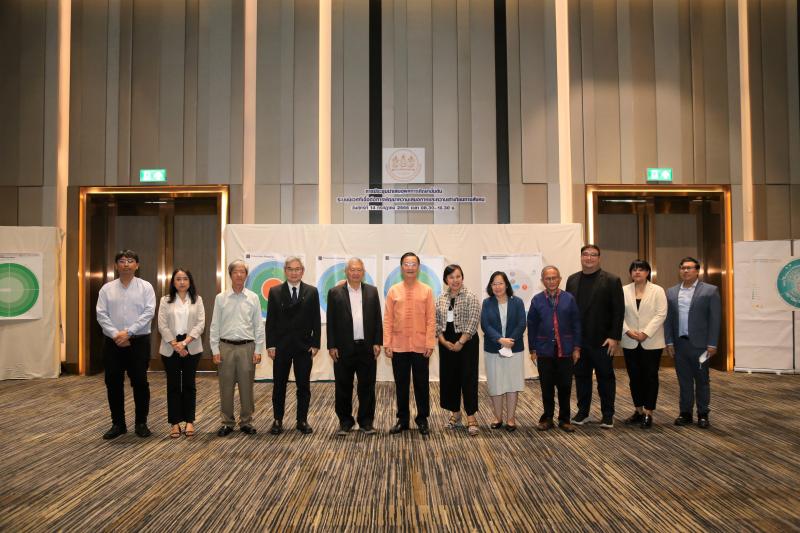
The Office of the National Economic and Social Development Council (NESDC), in collaboration with advisors from Chiang Mai University, Thammasat University, and Rice Impact Co., Ltd., presented preliminary study results on an ecosystem conducive to developing social equity and equality. The purpose was to create a platform for exchanging information, knowledge, and opinions on the draft ecosystem in the Thai context, as well as to gather feedback on policy recommendations for developing the ecosystem and developing a digital platform for integrating cooperation and resource sharing among various sectors to strengthen networks driving inequality reduction and leading to a society of opportunity and fairness, in accordance with the objectives of the National Strategy, relevant Master Plans, and the 13th National Development Plan.
On July 14, 2023, at Pullman King Power Bangkok Hotel, Ms. Worawarn Plikamin, Deputy Secretary-General of the National Economic and Social Development Council, presided over the opening of the meeting to present preliminary study results on an ecosystem conducive to developing social equity and equality. Approximately 100 participants attended, including speakers and experts participating in the study critique, NESDC Subcommittee on Creating Social Opportunities and Equity, representatives from government agencies, academia, and civil society organizations with roles in driving the creation of an equitable and equal society.
The Deputy Secretary-General stated that past inequality reduction policies have been fragmented and primarily focused on addressing problems at the individual level, lacking systemic and structural perspectives, resulting in gaps in integration among relevant agencies and partners. NESDC therefore collaborated with advisors from Chiang Mai University and Thammasat University to analyze ecosystem components that would facilitate the creation of holistic equity and equality through reviewing research, policies/measures/programs/major government projects both domestically and internationally, along with field visits to extract lessons from case studies, interviews with relevant agencies, and organizing Social Labs to analyze and categorize the roles of all stakeholders in the ecosystem, focusing on approaches under the National Strategy for Creating Social Opportunities and Equity and Master Plans under the National Strategy in three areas: social power, grassroots economy, and social equity and security, to formulate policy recommendations for ecosystem development. Additionally, in collaboration with Rice Impact Co., Ltd., a digital platform was developed as a central space for integrating cooperation in resource exchange among various sectors and serving as a platform for mutual learning exchange, creating social power capable of driving and connecting development toward policy-level change effectively.
The event was honored by Dr. Ampol Jindawatthana, Member of the Senate, who delivered a keynote address on “Equitable Society from Strong Community Foundations: Extending Social Power to Create Security and Develop Grassroots Economy”. Dr. Ampol told the meeting that creating an equitable society begins with distributing development opportunities so that local communities become strong and self-reliant, like building a solid foundation for society, similar to strong tree roots that help the trunk grow and resist wind. Furthermore, Dr. Ampol emphasized that “the sub-district is the strategic area for development” with key driving factors being creating data that sub-districts and communities jointly own, and promoting four-way partnerships among local areas, localities, local government agencies, and community organizations. Additionally, to have a system for promoting strong communities, local government organizations should be appropriately sized, be high-capacity organizations with sufficient rights, powers, duties, and resources to create high participation between citizens and various sectors in the sub-district.
The morning presentation by the Public Policy Institute, Chiang Mai University, consisted of “Overview of Ecosystem Conducive to Reducing Inequality, Developing Social Equity and Equality” by Assistant Professor Dr. Piyapong Boosabong, presenting an analytical framework for the ecosystem with four key 4Ps components: (1) Policy and Governance, (2) Local capital as initial conditions (Pre-conditions or Assets), (3) Driving spaces (Platform or Driving Spaces), and (4) Actors/stakeholders (Players or Drivers) categorizing roles in the ecosystem, comprising policy makers, resource and knowledge supporters, plan-to-practice drivers, and network coordinators, to connect these roles with driving the value chain components of Thailand under the three National Strategy Master Plan issues: social power, grassroots economy, and social equity and security, along with reviewing foreign policies from countries such as Sweden, the United Kingdom, and Singapore to apply as recommendations for developing the ecosystem in the Thai context. Next was the presentation of “Ecosystem for Strengthening Social Power” by Assistant Professor Dr. Pobsook Chamchong, illustrating patterns of social power emergence in Thailand and emphasizing that convergent social power models using both vertical and horizontal mechanisms are rare but have high potential to create social change, as they combine resources and support from government with network partners from private sector, communities, and civil society. Examples of this model include Khon Kaen development (Khon Kaen Model) and social power driving in Chiang Mai Province (Chiang Mai Model), which feature flexible regulations and opening spaces for cooperation and policy experimentation, such as the City Council and Chiang Mai City Lab, enabling mobilization of financial capital, knowledge, and social capital in the area. Additionally, there should be an agency serving as a “Policy Ecosystemizer” to coordinate and connect area-based and issue-based driving, along with establishing Joint KPIs for relevant sectors, with the opinion that public organizations and research units in educational institutions have structures and potential conducive to performing such functions.
Subsequently, the meeting opened for expert critique of the study results, comprising Professor Emeritus Surichai Wankaew from Chulalongkorn University, Dr. Teeraphath Angsuchon from Mahidol University, and Mr. Nattapol Theskayan from the Office of Specific Population Health Support, Thai Health Promotion Foundation, as well as NESDC Subcommittee on Creating Social Opportunities and Equity. Important opinions and observations included creating partnerships amid conflict and distrust situations, managing knowledge and experiences as symbols and pride of groups to connect network operations, increasing prototype areas for elderly grouping with potential (Active Aging), studying power structures in communities, analyzing problems and obstacles in welfare database integration, and reviewing targeted welfare approaches to prevent exclusion problems in target groups.
The afternoon session featured presentations from Thammasat University by Dr. Sinyanee Hiransalee on “Ecosystem for Grassroots Economic Development”, applying the OECD’s Social Solidarity Economy concept that uses economic development as a tool to promote quality of life and create social and environmental outcomes as an analytical framework to categorize stakeholder roles in each stage of grassroots economic operations. The study found significant gaps in the ecosystem: knowledge, entrepreneur skills, and environments conducive to debt management during business downturns, leading to recommendations such as promoting debt management knowledge alongside financial behavior modification, revitalizing the cooperative system to suit current contexts, and modifying land use to benefit grassroots entrepreneurs. This was followed by the presentation on “Ecosystem for Creating Social Security” applying Social Security and Social Protection conceptual frameworks to analyze and categorize stakeholder roles in the ecosystem, along with analyzing forms/measures of social protection existing in each age group and components of Thailand’s value chain, with recommendations including decentralizing authority for civil society to concretely participate in creating Social Safety Nets, creating contributory security systems, and managing necessary databases.
Next, representatives from Rice Impact Co., Ltd. presented a cooperation platform for fair resource distribution under the name “Thailand Integrated Social Ecosystem Platform (TISEP)” targeting government agencies, civil society organizations driving development, and supporting partner agencies. Key features of the TISEP platform include collecting and storing resource data and stakeholder information in the ecosystem, presented through mapping formats enabling convenient and accurate searches for resources, projects, and organizations through menus and data filters, helping users contact and share assistance with others, as well as stay informed about operational progress in each area.
Following the afternoon presentations, the meeting opened for expert critique of the study results, comprising Ms. Sarinee Achawanantakul from Pa Sala Co., Ltd. and Ms. Nopkao Sucharitakul from the Stock Exchange of Thailand. Important discussion points and observations included implementing Regulatory Impact Assessment (RIA) tools to evaluate project impacts on creating inequality in various aspects, reviewing assistance measures for non-profit social enterprises such as developing quality of life for vulnerable groups. Additionally, regarding platform development, displaying inequality situations at district or sub-district levels should be added, such as income ratios between Top 10 and Bottom 10 populations in each area, to increase interest and help target areas/operations accurately, as well as adding responsive web design for various screen sizes to facilitate usage.
This meeting was part of the project “Developing Policy Sets for Ecosystem Development Conducive to Driving Social Equity and Equality” which NESDC implemented in fiscal year 2023. The discussion points and opinion exchanges from the meeting will be used to improve and develop the ecosystem conducive to developing social equity and equality, as well as policy recommendations and the TISEP platform to be more complete and comprehensive.
News: Social Equity and Equality Development Strategy Division
Photo: Jakrapong Sawaphapmongkol
